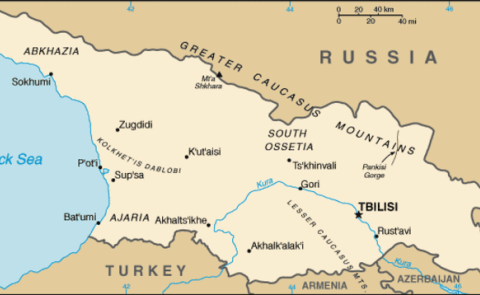
World Bank study on public perception of Covid-19 situation in Armenia

On 24 August, the World Bank published their report on a study that was carried out in Armenia on the perception of the situation formed by the pandemic, reported arka.am. The study was conducted from 21 to 29 July 2020. As many as 774 respondents over 18 years old took part. Among the interviewed citizens, 37% live in Yerevan, 36% - in rural areas and 27% - in other cities.
The study showed that the coronavirus is currently perceived as a priority problem for the country by 36% and unemployment by 33%, followed by poverty and inequality (18%), economic growth issues (17%), education system issues (17%) and healthcare system issues (15%). More than half of the respondents (54%) noted that their personal financial situation has worsened due to the epidemic. 47% of the questioned said that the reason for the prevalence of the virus in the country was to the disobedience of the rules (keeping distance, wearing masks and gloves) by the Armenian citizens, followed by low levels of hygiene (12%) and political/economic competition by world powers (9%).
It was also indicated that a third of respondents (35%) lost their jobs due to an outbreak of illness or reduced their working hours/income. To compensate for the diminished income, 36% of respondents cut their spending on food, and 43% on other basic necessities, the report said. It was reported that 30% believe that their economic situation will remain the same over the next 12 months, 25% hope that it will improve, and 33% expect the economic situation to deteriorate.
In other areas, the study showed that 54% of surveyed citizens trust the healthcare system, while fewer people trust the state healthcare system - 42% fully trust and 27% partially trust. The police also have a high level of public trust (43% fully trust and 29% partially trust). The most distrusted institutions were the social media (26%), the banking system (19%) and the Armenian media (17%).
Many believed that the state programmes providing support for citizens in the fight against the coronavirus are sufficient (19%) or somewhat sufficient (34%). 65% of the respondents said that their living situation had not improvement because of the government programs. 27% of respondents noted that the most preferable type of support is the delay in payments and repayment of loans, and 24% gave priority to assistance with utility payments and 14% for the coverage of basic salaries during the non-working period.
The current tally of infected persons in the country stands at 42 936, with 858 reported deaths.
See Also


Weekly Brief on Military Situation in South Caucasus Countries (June 2–8, 2025)

Armenia–Russia Trade Hits $12 Billion in 2024, Up 60%

Armenia and Russia Reaffirm Strategic Ties Amid Speculation of Strained Relations

Sergey Naryshkin Accuses Britain of Destabilizing Georgia

